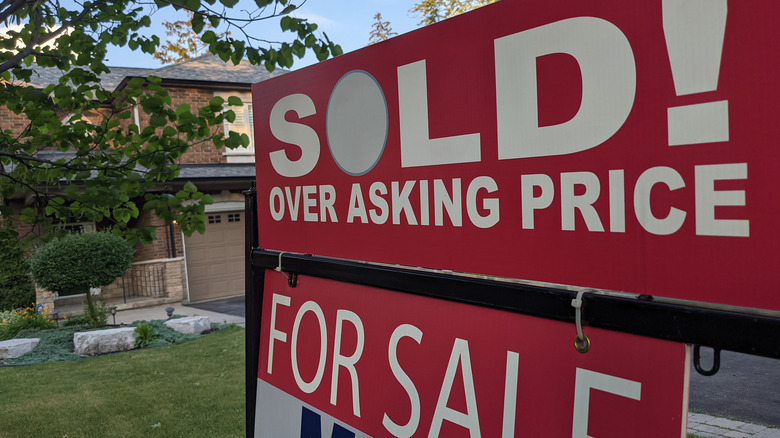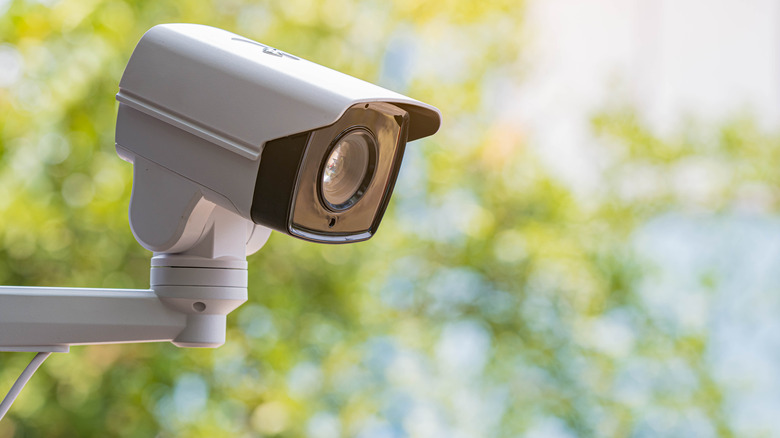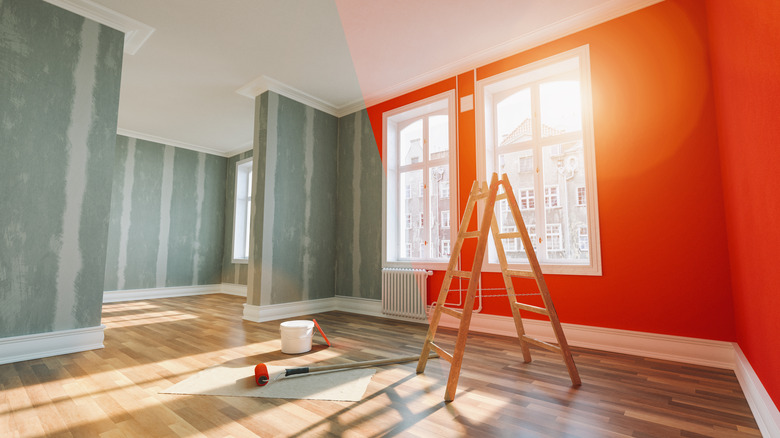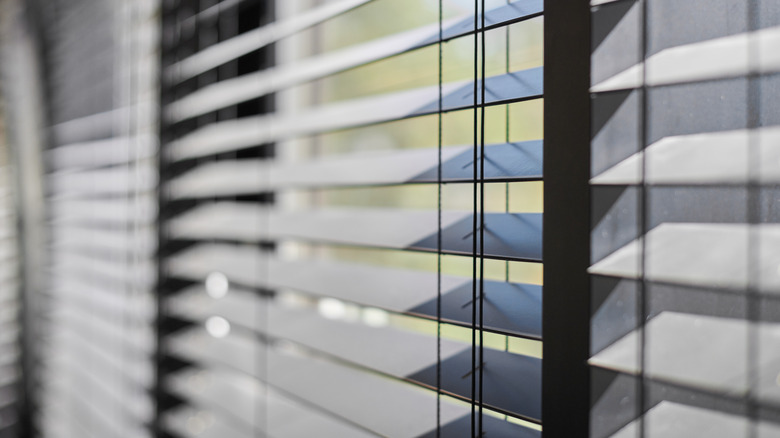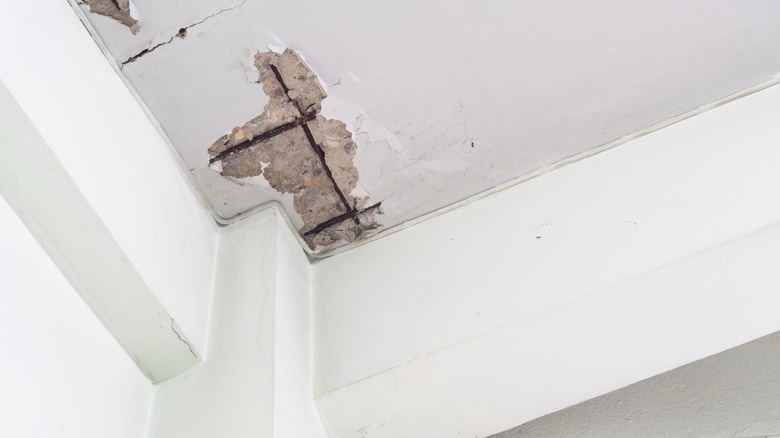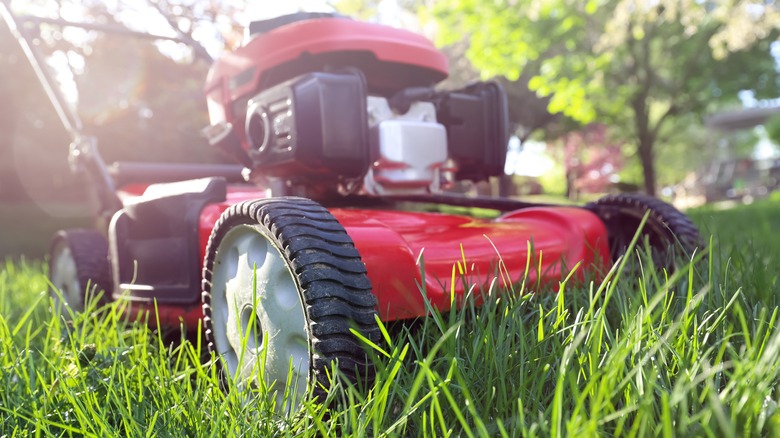5 Ways To Protect Your Vacant House Until You're Ready To Move In
When you buy a house, sometimes, you may not be able to move in right away. This could be due to various circumstances; however, one thing remains the same — you need to find a way to protect it until you're able to live in it. According to The Zebra, a home gets broken into every 15 seconds in the United States.
Burglaries aside, there are many other unfortunate events that can take place on your property while you're away. For example, Sam's Carpet Cleaning and Repairs states that one small accident can cause your entire home to flood. This could be anything from a small faucet leak to a busted washing machine hose. Likewise, if an electrical problem occurs, your new pad can easily go up in flames. Therefore, it's crucial to be proactive to prevent these incidents. But what can you do? From making it secure to maintenance and cleaning, here are five ways to protect your vacant house until you're ready to move in.
Make it as secure as possible
First and foremost, you should make your home as secure as possible. This can be done in many ways, however, the most obvious way is by changing the locks. While it's impossible to say for sure, the keys you have for your new house may not be the only ones that exist. If your home has a keypad, consider changing the passcode. Or, for complete peace of mind, HomeServe says you can replace the keypad completely for $75 to $175 depending on the model. In addition, make sure every window is shut and locked. If a window doesn't lock or the lock is broken, you may want to consider installing a lock or replacing it with a model that has one already installed.
Another way to secure your home is to install safety measures such as security cameras. Not only can these systems record everything that happens on your property, but according to US News, they can also drive away any unwanted intruders. In addition, once you do move into your new pad, these cameras will be useful to keep an eye on the property in the future. Finally, to help secure your home, you can install an alarm system. These systems will let you know if your home has been broken into and can call the police for you.
Do any home renovation and deep cleanings
Since you're not moving in right away, this is the perfect time to do any renovations. This way, there isn't any furniture that will need to be moved from room to room. If you need to replace any flooring, hiring a professional to do so before moving in can also ensure your personal belongings don't get damaged in the process. Likewise, any painting should be done prior to moving in. According to Woodiwiss Painting, fumes from the paint can hang around anywhere from 36 to 48 hours after the room is finished, and in extreme cases, this smell can hang around for a week. These fumes are unhealthy to inhale, so painting beforehand can eliminate this.
After you do any renovations, or if you opt to not do any, it's always a good idea to do a deep cleaning on the inside. As The Professionals Moving Specialists points out, specific areas that should be cleaned are windows, ceiling fixtures, door knobs, outlets, and ledges. Additionally, according to The Pragmatic Parent, some of these places are areas that don't get cleaned as often as they should; therefore they're probably dirtier than you realize. In addition, each room should get swept, mopped, and vacuumed. Other features such as faucets and appliances already installed should be disinfected. This can assure there won't be any mold or other germs growing in your new home and gives you a fresh start when you move in.
Make it look like someone lives there
Once your cleaning is out of the way, to further protect your home, you may want to make it look like you already live there. Much like a security system, this can deter any intruders away since vacant homes are more likely to get broken into, notes EMC Security. To do this, consider moving in any furniture you will not need until you live there. Ideally, rooms that can be seen from the street should be filled with these items. Another idea is to keep on a lamp as this gives the illusion that somebody is at home. To save on energy, you can plug this lamp into a timer to set it to come on at certain times.
Additionally, to further block the view, install curtains and blinds throughout the home. This will prevent anybody from peaking inside your pad and verifying that you are not yet living there. Don't forget to add subtle touches too. For example, a doormat, a flag, or even a door wreath can further give the illusion that the home is not vacant. If you want to take further measures, you can even ask someone you know nearby to park their car there. On the other hand, if you have more than one vehicle, you can park one of them there as well.
Do a final walk through and inspection
If you currently live far away from your new residence, before returning home, do one last walk-through. Take note of everything you have there such as furniture or personal belongings. Remember your placement of these items as well as unusual markings. If these things are not the way you left them or you notice more quirky defects, this can indicate someone was in your home while you weren't there. If need be, take photos of everything. This way, if something did happen, you have evidence to show the authorities. You should also unplug any appliances that are already in the home to prevent a fire or shortage during any storms.
If you haven't done so already, consider having your home inspected. While there are many things that can be looked at during this inspection, HomeLight says to check both the foundation and the roofing. If either has any cracks, your home may be vulnerable to flooding while you're away. Likewise, the plumbing and electrical systems should have a thorough check. If there is a leak anywhere, this cannot only flood your home but cause damage to the flooring and any personal items in its path as well. Or, if there is an electrical shortage, you run into the risk of a fire starting while you are away. While you can inspect all of these elements yourself, it's recommended that you hire a professional.
Hire someone to maintain the exterior
Another useful way to protect your new home while it is still vacant is to hire someone to maintain the exterior. Of course, as one might think, an overgrown yard can be a welcoming sign to robbers. However, if the grass is cut on a regular basis, then this can also trick intruders into thinking you already live there. According to Niemeyer's Landscape Supply, grass should be cut once a week during the growing season, which can range from summer to spring or fall depending on your region. However, during the non-growing season, grass can be cut every other week. There should be a business or two within your area that will cut your grass for you as needed. Otherwise, you could ask a neighbor and pay them instead.
Lawn care aside, you could also hire pest control to spray the outside of your home. This is to prevent any bugs, insects, or even mice from causing damage both inside and out. As Classic Pest Pro points out, if you see any indication of termites, you should call a professional immediately. If not, you could end up spending thousands of dollars to fix the damage – Northwest says that if it is just a small infestation, you can DIY to save some money. However, it's also best to stay ahead of the game and do at least one throughout spray to prevent any pests from gathering while you're away.
